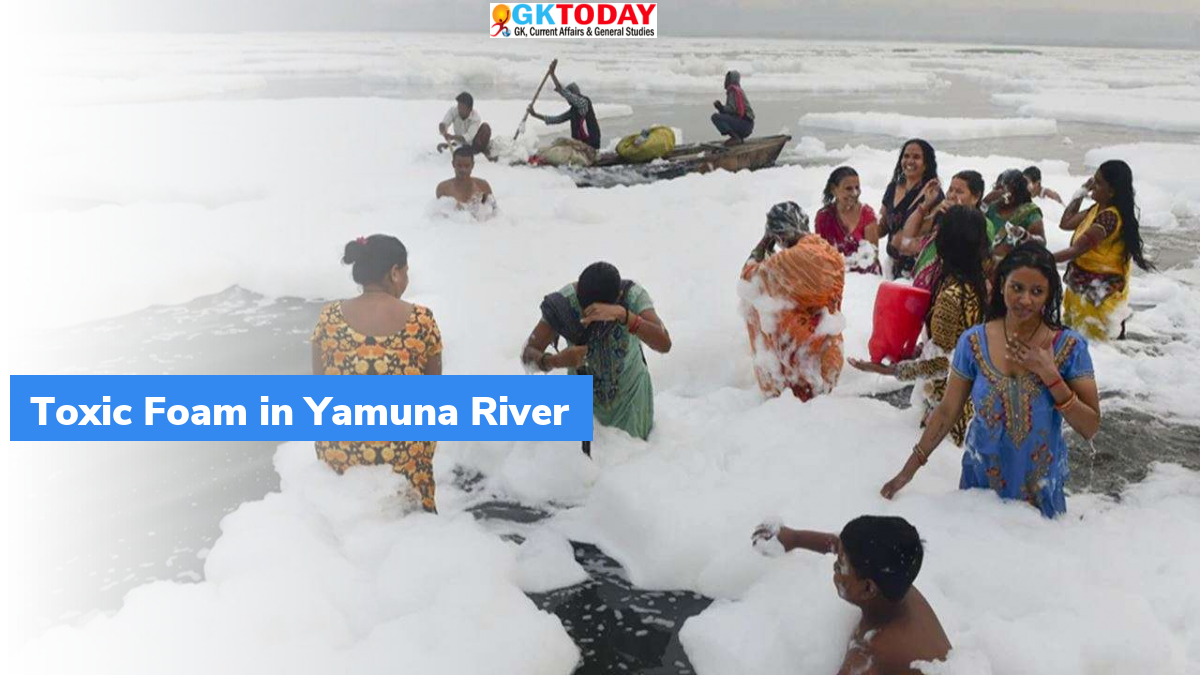Toxic Foam in Yamuna River
On November 8, 2021 devotees offered prayers as a part of their four-day Chhath Puja celebrations at the banks of foam-coated Yamuna near Kalindi Kunj. The visuals have worried environmentalists and led political war of words between Aam Aadmi Party (AAP) and other state governments.
Highlights
Between Wazirabad and Okhla, Yamuna runs for 22-kilometre. It is less than 2 per cent of its length of 1,370 kilometres between Yamunotri and Allahabad. But this stretch accounts for 80 per cent of the total pollution load in the river.
What is froth formation?
Phenomenon of froth formation takes place on several lakes and streams. These Foam bubbles are produced on the decomposition of organic matter. The foam-producing molecules comprises of two ends. Its one end repels water while another attracts water. These molecules work to reduce the surface tension on the surface of water. Foam bubbles are lighter as compared to water. Thus, they float on the surface as a thin film and gets accumulated over time.
What are the reasons for froth?
Major reason behind froth formation is presence of phosphates and surfactants in untreated sewage generating from Delhi, Haryana and Uttar Pradesh. Phosphates and Surfactants components comprise of 1 percent of the froth, while 99 per cent is air and water.
Sources of pollution causing foam formation
Sources of pollution that cause foam formation include untreated sewage containing soap-detergent particles, organic matter from decomposing vegetation, industrial effluents and presence of filamentous bacteria. Pollution from paper and sugar industries in Uttar Pradesh travel through Hindon canal is also a major reason of pollution in the Yamuna.
Month: Current Affairs - November, 2021


